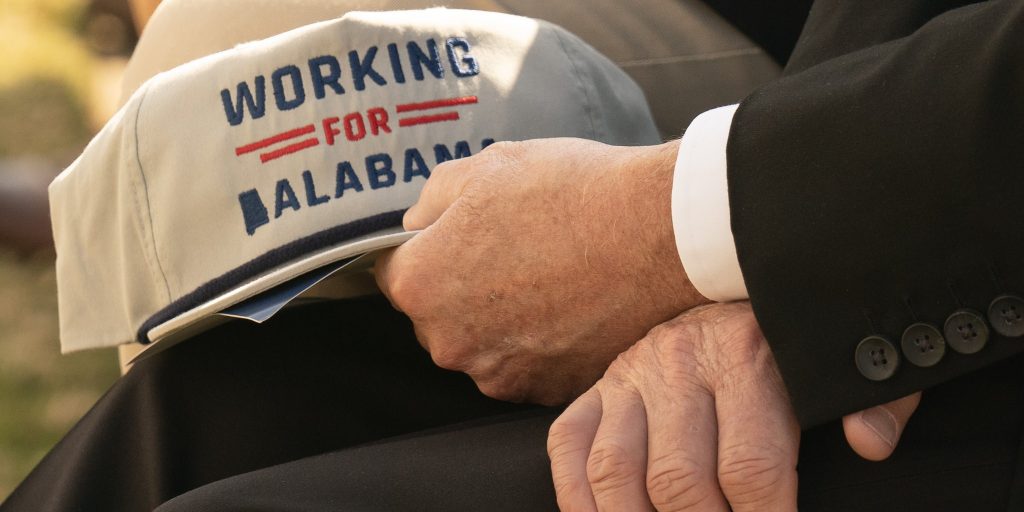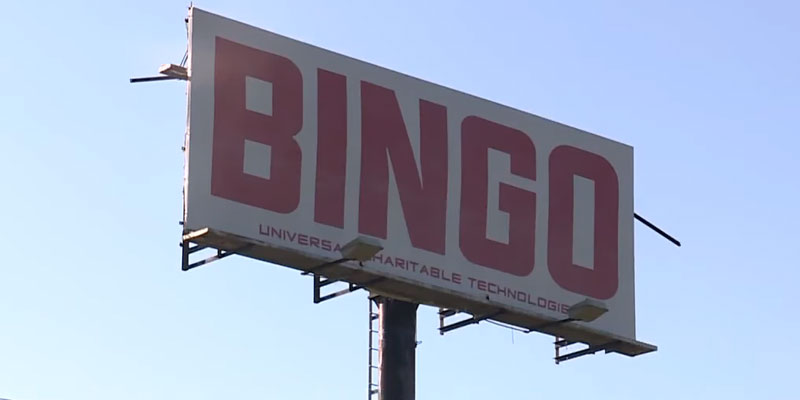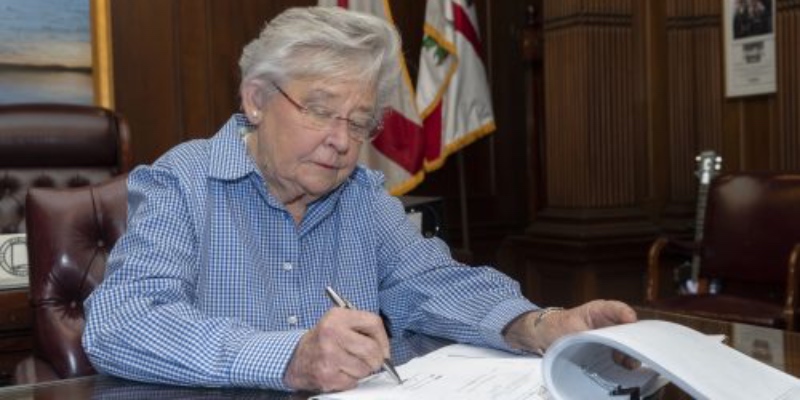Last week, through an act of the legislature, Alabama significantly changed its tax code with two objectives — not to tax federal benefits stemming from the CARES Act intended to provide relief from the COVID-19 economic downturn and make Alabama more competitive with its neighbors in the spirit economic development.
Leading the way on the effort were State Sen. Dan Roberts (R-Mountain Brook) and State Rep. Danny Garrett (R-Trussville), who pulled off the instrumental feat of getting the bill through the Alabama Legislature within the first two weeks of the 2021 regular session.
During an appearance on Mobile radio’s FM Talk 106.5, Roberts laid out exactly what HB 170, signed into law by Gov. Kay Ivey last week, changed in the tax code.
“What was so fascinating about this is this all dovetailed in with the CARES Act, the PPP and the CAA — the three bills that the feds did that set roughly $8.7 billion on Alabama and the impact that has had to get us through this pandemic season has been amazing. It was really two-prong — first of all, where it would take care of CARES money, which was the stimulus funds that flowed into Alabama that everyone received — probably two checks with that. And then there is the third one. And none of those will be taxed a bit. I believe the executive branch never intended to tax that. And, of course, we did not,” Roberts explained.
“One of the last times we talked, Jeff, we thought we would be back in a special session, and that never came to fruition so as a result, the governor issues an executive order in late December stating it was not her intent to tax that, but it had to be codified through legislation,” he added. “So we got that done in five days dealing with roughly $8.7 billion of funds that came into the state. Those will not be taxed by Alabama. That was a yeoman’s effort to get done.”
Roberts also discussed the bill’s long-term tax reform elements, which he argued does a lot to put the state on a level playing field with neighboring states.
“[I]ntitially, I laid out with you the Alabama Business Competitiveness Act, which allowed us to make Alabama more competitive with our surrounding neighbors,” Roberts said. “That’s what we were able to do. The first part of that, we went from a three-factor with double-weighted sales apportionment for our businesses, and we went to a single sales factor. Unless you’re an accountant, you may not understand that, but that puts us on par with surrounding states.”
According to the Jefferson County lawmaker, the provision will make it advantageous for suppliers and other vendors for manufacturing giants located in Alabama, like Hyundai and Mazda Toyota, to be located in Alabama.
“More than half the states in the nation have gone to this in the last five years, and we were just a little behind,” Roberts added.
Other changes included decoupling from the federal Global Intangible Low Taxed Income (GILTI) and making changes to the treatment of the federal interest limits.
“The second thing we got done was an interest limitation situation for business that, of course, are borrowing money, and they’ve been limited on interest expense,” he said. “What they can do is they can expand. So that’s a big part of that. And another one is global income low tax. It’s called GILTI, and that’s where logos are held, and we don’t have a tremendous amount of companies in Alabama that have that, but we’ve decoupled from that. And then lastly, one of the things I’m most excited about is called throwback sales.”
“We are not taxing things that are manufactured in Alabama and sold into no-tax areas and U.S. government sales,” Roberts continued. “And the announcement in Huntsville of Space Force — I believe this puts us in a very favorable position to have companies that want to manufacture things that will go to Space Force or to Austal or anything else that is sold to the U.S. government will also fall under that throwback rule. That gives us a tremendous advantage over our surrounding states. Tennessee has throwback, but they don’t have U.S. government sales. It really, really gives us a competitive advantage that we have not had before.”
Roberts said the bill in its entirety is effective January 1, 2021.
He also discussed the possibility of eliminating Alabama’s grocery tax, which critics have decried as a punitive tax on lower incomes. According to Roberts, filling the void in the Education Trust Fund budget and preventing local governments from using the tax relief as an opportunity to raise their own taxes presented challenges.
“That’s something that is something that is a major burden for our citizens, and we would like to deal with that,” he said. “The revenue generated from that grocery tax is roughly $427 million per year. So it is a big hole to fill if we take it off. And, of course, we’re looking at ways to deal with that. That is most punitive on the lower you go on the economic cycle, a larger negative impact on those families.”
“Yes, we’re looking at ways constantly to deal with that, but that all goes to the Education Trust Fund,” Roberts added. “So that makes it very difficult to fill a $427 million hole if you just cut that off. One thing that does concern me — if we were to remove that, it would not surprise me to see counties and other cities think, ‘Well, we’ll put another penny back on there because everybody is used to paying 9, 10, 11% on what they purchase. If we take 4% off of that, they may try to come back, and we can’t prohibit them from adding a tax back on if we’re able to get the 4% on groceries off, and that’s always a concern because you know government always wants more and my goal is to do a whole lot more with less. And that’s something we work on regularly — how can we be more effective and our citizens’ taxes less.”
@Jeff_Poor is a graduate of Auburn University and the University of South Alabama, the editor of Breitbart TV, a columnist for Mobile’s Lagniappe Weekly, and host of Mobile’s “The Jeff Poor Show” from 9 a.m.-12 p.m. on FM Talk 106.5.













